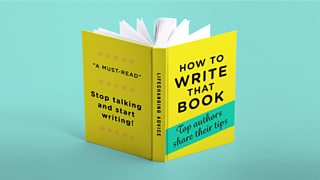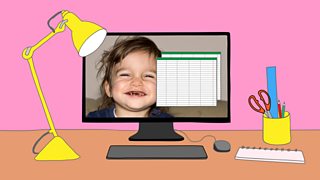Mindfulness for parents: How (and why) to get started
Practising mindfulness can help calm parents and children alike, but many struggle to find the time to fit it into their day. Izzy Judd, who has written the book Mindfulness for Mums, and Sian Warriner, a Consultant midwife at Oxford University Hospitals NHS Foundation Trust who runs mindfulness courses for expectant parents, recently appeared on Woman's Hour on ����ý Radio 4. They share some of the ways they believe mindfulness can help parents - starting from childbirth right through to day to day family life...

What is mindfulness?
“Mindfulness is present moment awareness in its most simple form. We spend a lot of our time in what can be described as automatic pilot - we drift off into the past or the future," says Sian.

"Reflection is a useful thing but that can easily slip into rumination on what could have happened, what should have happened, what ifs and what only's. Future planning can easily slip into overthinking and catastrophising about what may or may not happen. It’s that ability to come back to the present moment now and to do it without judgement and with compassion and kindness for yourself.”
How can you find time to practice mindfulness when you’ve got kids to look after?
“You can practice mindfulness with your children,” says Izzy, based on her own experience. “Whether they choose to sit and join in or cause chaos, that’s just whatever the day might bring. But, for example, with Lola - nearly four - we do breathing exercises together and Kit, who’s two, is starting to join in.
"We lie down, we choose a teddy bear, one for me and one for her. We place it on our tummies and we breathe in and out and we watch the teddy rising and falling. It’s getting her used to connecting herself with her breathing, because as children we’re naturally very mindful but as adults we forget how to be mindful, we forget to think about our breath."

Mindfulness: Three ways to get started with Izzy Judd
Izzy Judd, author of Mindfulness for Mums, on how to bring mindfulness into your day.
What else can a busy mum do when she’s with the kids all the time?
“As a mother there’s a feeling of being overwhelmed, the emotions you go through, the tests of your patience and frustration you go through, means that finding moments in the day is hard. Here’s a mindful pause to try. You’re waiting for the kettle to boil and the children want their breakfast.
That little tiny sliver of space begins to open up for you, in which you can choose how to respond rather than simply react to it.
"You’re standing there, ground your feet - feel the floor under you - take a deep breath and just say a positive affirmation... 'All is well'."
How can mindfulness help with labour?
“Everyone has an individual experience of mindfulness,” says Sian, who teaches an antenatal course.
"Labour is not without pain and you have to be honest and open about that. But the attitude that we bring to that can make a big difference. For many people fear - fear of the unknown, fear of loss of control, that they don’t know what’s coming - is a big issue for them. It’s about having that control over your life a lot of the time and then it being taken away from you."
Sian adds: "The course we run is about how to ground yourself, how to come back to that sense of being centred, being calm, knowing each of these moments is going to pass, so not being in the middle of labour thinking: ‘Oh, that was a dreadful contraction and there’s another one about to come and I don’t know what I’m going to do’, but coming back to the moment right now in between and thinking, ‘It’s OK.’
Mindfulness and a story about tennis
“For many of us we judge ourselves, we blame ourselves, we can belittle ourselves without even really recognising it,” says Sian.
“So in mindfulness it's this ability to start recognising our own patterns of thinking that may not be that helpful for us. Once we start recognising those unhelpful patterns then we can start doing something about it, we can start having a choice. It's sort of reducing our reactivity and increasing our ability to respond more wisely.”
Sian says a story around tennis can help: "I'd started to learn how to play and I found it difficult because in the beginning the ball's coming over the net at you, and you've got your racket and all you can do is react. You put the racket up and you've got no real control about what happens to the ball. Sometimes it goes back over the net, sometimes it goes into the net, sometimes it goes off the side of the racket and it's just not great.
“But, if you practise and practise and practise... that's what you need to do with mindfulness, it does take practise. So you practise your tennis and the tennis ball is still going to be coming at you at what seems like a hundred miles an hour - it's like life coming at you - but once you've been practising for a while you start to recognise patterns. You think, ‘Oh, I've seen this kind of play before, I know where this is going.’ That little tiny sliver of space begins to open up for you, in which you can choose how to respond rather than simply react to it.”
“That's how I see my mindfulness practices," adds Sian. "It's that ability to give me that little bit of space in which to work, to make a choice, rather than simply react to something.”
You can listen to this episode of Woman's Hour right now on ����ý Sounds. Izzy Judd is the author of Mindfulness for Mums. Sian Warriner is consultant midwife at Oxford University Hospitals NHS Foundation Trust and runs mindfulness courses for expectant parents.




